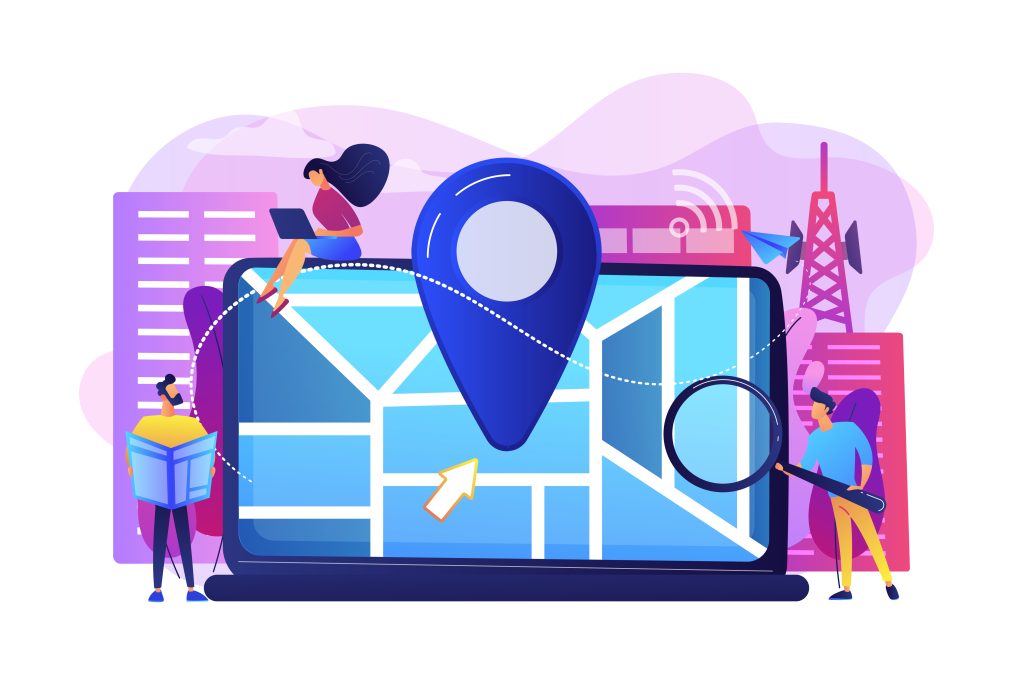What is the Difference Between Local SEO and Organic SEO?
In the realm of digital marketing, SEO (Search Engine Optimization) plays a crucial role in helping businesses increase their visibility on search engines like Google. The ultimate goal of SEO is to drive organic traffic to your website. However, depending on the type of business and target audience, the approaches used in SEO can vary. Two commonly discussed forms of SEO are Local SEO and Organic SEO. These two strategies, although related, have distinct differences in terms of implementation and outcomes.
In this blog, we’ll explore the key differences between Local SEO and Organic SEO, highlighting their individual strategies, benefits, and why it’s important to understand when to implement each approach.
What is Organic SEO?
Organic SEO refers to the process of optimizing a website to improve its rankings on search engines based on merit, rather than paid efforts. It involves various strategies like creating high-quality content, earning backlinks, optimizing on-page elements, and ensuring technical SEO health. The primary goal of Organic SEO is to rank higher for search queries that are broad, and non-location-specific.
Here’s a breakdown of what Organic SEO entails:
-
Content Optimization: Creating relevant, valuable content that answers the user’s search intent.
-
Keyword Research: Identifying the right keywords and incorporating them naturally into the content.
-
Backlink Building: Earning backlinks from authoritative websites to improve your domain authority.
-
On-page Optimization: Ensuring that each webpage is optimized with appropriate tags, meta descriptions, headers, and content structure.
-
Technical SEO: Focusing on website speed, mobile-friendliness, security (HTTPS), and other technical elements.
Organic SEO is ideal for businesses with a wide audience, as it helps rank your website higher for global or national search terms, like “best SEO practices” or “how to cook lasagna.”
What is Local SEO?
Local SEO is a specialized branch of SEO that focuses on optimizing your online presence to attract local customers and appear in search results for location-based queries. If your business serves a specific geographic area, Local SEO helps improve your visibility for searches like “best pizza near me” or “plumber in Chicago.”
Here’s what Local SEO typically includes:
-
Google My Business Optimization: Setting up and optimizing your Google My Business profile with accurate information such as business name, location, contact details, and hours of operation.
-
Local Keywords: Targeting location-specific keywords like “SEO services in Denver” or “plumber in Austin.”
-
Local Citations: Ensuring that your business is listed consistently across local directories like Yelp, Yellow Pages, and others.
-
Customer Reviews: Encouraging positive customer reviews on platforms like Google and Yelp.
-
Location-Based Content: Writing content relevant to your local area, such as blog posts or service pages that highlight local events or news.
Local SEO is essential for businesses that rely on local customers or those that want to attract visitors to their physical locations. Think of restaurants, law firms, auto repair shops, or dental clinics—these businesses depend on local searches to drive foot traffic and online engagement.
Key Differences Between Local SEO and Organic SEO
While both Local SEO and Organic SEO focus on improving a website’s search engine ranking, they target different types of queries and utilize different strategies. Here’s a quick overview of how the two differ:
1. Target Audience and Search Intent
-
Organic SEO: Targets broad, non-location-specific queries. For instance, a person searching for “best running shoes” is not necessarily looking for a local store.
-
Local SEO: Focuses on location-based searches like “best running shoes in New York” or “dentist in Los Angeles,” catering to users who are searching for businesses in their local area.
2. Ranking Factors
-
Organic SEO: Primarily focuses on factors like content quality, backlinks, user experience, and overall website authority.
-
Local SEO: Involves local-specific ranking factors such as proximity to the searcher, Google My Business optimization, local citations, and online reviews.
3. Search Results Features
-
Organic SEO: Typically appears in the regular search results list, based on the website’s relevance and authority.
-
Local SEO: Often triggers the Local Pack (also called the Map Pack), which includes a map and a list of local businesses relevant to the search query.
4. Google My Business
-
Organic SEO: Google My Business doesn’t directly affect rankings in organic search results but can enhance visibility for local searches.
-
Local SEO: Google My Business plays a pivotal role in local SEO. Optimizing this profile helps your business appear in the Local Pack and attract local customers.
5. Search Results Display
-
Organic SEO: Rankings are based on how well your website matches the search query’s intent and how authoritative it is compared to competitors.
-
Local SEO: Rankings are influenced by the location of the searcher. A business close to the searcher is more likely to appear in local search results.
When Should You Focus on Local SEO?
If your business primarily caters to a specific geographic region or community, Local SEO should be your main focus. For example, if you own a bakery, your customers will likely be searching for “bakery near me,” so optimizing for local SEO will ensure you show up when users search for nearby options.
Key steps for local SEO include:
-
Setting up and optimizing a Google My Business profile
-
Focusing on location-based keywords
-
Building local citations
-
Encouraging reviews and managing your online reputation
For businesses like law firms, dentists, and retailers with physical locations, Local SEO is critical to attracting customers in the local area.
When Should You Focus on Organic SEO?
If your business serves a national or even international audience, Organic SEO should be your primary strategy. For example, e-commerce websites or content-based sites can benefit from focusing on ranking for broad terms and capturing traffic from all over the world.
To optimize for Organic SEO, you should:
-
Focus on creating high-quality, informative content
-
Build backlinks from authoritative sites
-
Improve your site’s user experience (UX)
-
Ensure your website is technically optimized for search engines
How to Combine Local SEO and Organic SEO
In many cases, businesses can benefit from a combination of Local SEO and Organic SEO. For example, a national brand that has multiple locations can optimize each location for local SEO while still targeting national-level keywords for its website.
To combine both strategies, you can:
-
Optimize location pages with local keywords while focusing on building content that attracts traffic at a national level.
-
Target both broad and location-specific keywords on your site to cover all potential customer bases.
-
Leverage local content like blog posts, but also keep a comprehensive content strategy for organic traffic.
Key Takeaways: Local SEO vs. Organic SEO
Understanding the difference between Local SEO and Organic SEO is essential for businesses looking to improve their online presence. Local SEO is ideal for businesses that serve a specific geographic area and rely on local customers, while Organic SEO is more suitable for businesses targeting broader, non-location-specific search queries.
By knowing when to implement each strategy—and how to combine them—you can create a comprehensive SEO approach that will boost your visibility, attract more customers, and help your business grow both locally and globally.





